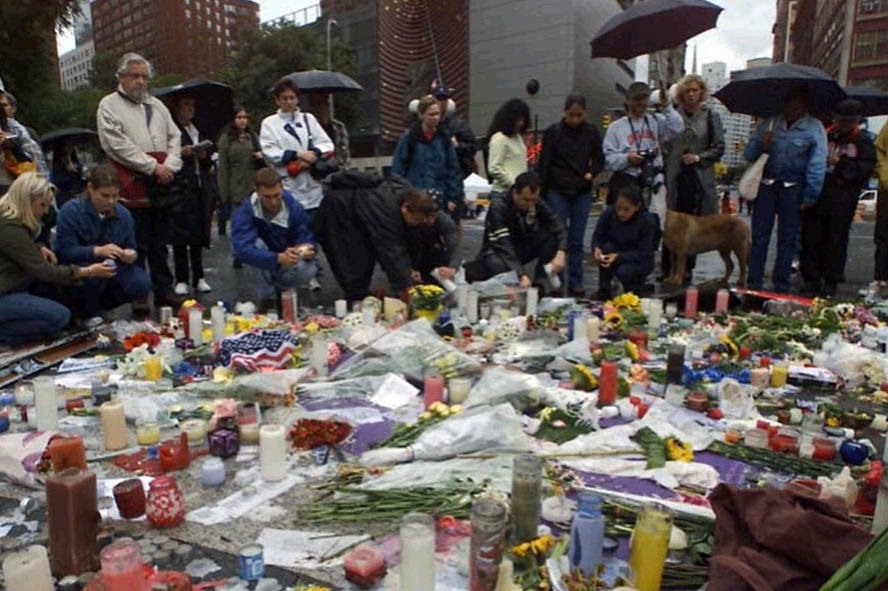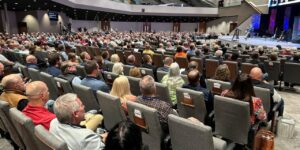
NEW YORK (BP) – Even months after the towers fell, the debris remained. Don Pierson saw it everywhere – in the city streets and the subways. And as the dust lingered, so did the hurt, anger and fear.
But according to Pierson, that potent combination of emotions pushed people to find more strength and unity in prayer than he had ever before experienced.
As the chaplain coordinator for Southern Baptist Convention Disaster Relief (SBDR), Pierson was deployed to New York after 9/11. The program was in its infancy, but in response to the acts of terror and the sudden, intense need, Pierson and others kicked into high gear.
There was hunger for the comforting presence of God. Prayer was the main focus. Referencing Psalm 107 (“… they cried out to the LORD in their trouble; he rescued them from their distress…”), Pierson noted that in crisis, people prayed like never before.
“That’s what we saw in this nation during that time,” he said. “Of all the bad that was done through 9/11, it did unify churches and denominations. It wasn’t just Southern Baptists that were praying … there was unity in prayer in our nation that can only be known in a time of crisis like that.”
Pierson, who also formerly served as prayer strategist for the Tennessee Baptist Convention, retired seven years ago and is now pastor of Stewart’s Chapel Baptist Church in Flintville, Tenn. But his perspective was forever impacted by his time serving in New York.
In the initial days after 9/11, his ministry took place at Ground Zero in lower Manhattan, where the twin towers had fallen. He regularly worked the midnight shift, providing counseling in temporary shelters set up for first responders to relax or take meals, in a temporary morgue or at St. Paul’s Chapel, which served as a ministry center and place of refuge.
“There would be maybe three or four people who were working in the pit that would come out to find relief,” he said of those overnight shifts, “and basically you just got to know them and you ministered to them.”
Pierson said he believes God was preparing the hearts of Christians to engage in intense prayer even before that unforgettable day. After 9/11, there was urgency to do just that.
“There was a lot of anxiety and intensity of emotions among our people,” Pierson said. “Prayer as a whole was at a climax. Fear will do that to people. Our nations and our churches were affected by that, by the unknowns.”
Shortly after 9/11, Pierson was provided with another perspective when he traveled to Palestine. In Gaza, he served alongside SBC missionaries and in hunger-relief efforts. He said he saw the anger of Muslim people, and that the experience affirmed to him the absolute necessity to listen and love, no matter the circumstance.
“I believe God said to me, ‘Don Pierson, it’s more important for you to listen than it is for you to speak. And what you hear may not be what you want to hear, so make sure you keep your emotions in check as you listen.’,” Pierson said. “Anger was high in America during that time. It was in our churches, it was everywhere. People said things during that time they probably wouldn’t say today, and so I think I learned to listen better. I learned to choose my words more carefully.”
Those experiences helped to form and refine his views on prayer.
“I still believe our God is a God who loves the world and is not willing that any should perish,” Pierson said. “Praying for the lost has to be for those that look like you, and those that don’t look like you.”
Pierson said God instilled a confidence in him that every life experience is for a purpose.
“Every part of our journey, God uses in the future,” he said, adding:
“I learned a lot in the midst of 9/11 and the months after about not only praying, but responding and ministering to people in crisis and doing so on both sides. I was a missionary that had a strong bent towards prayer; I am now a pastor that has a strong bent toward prayer.”















